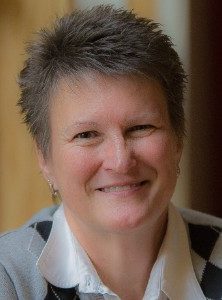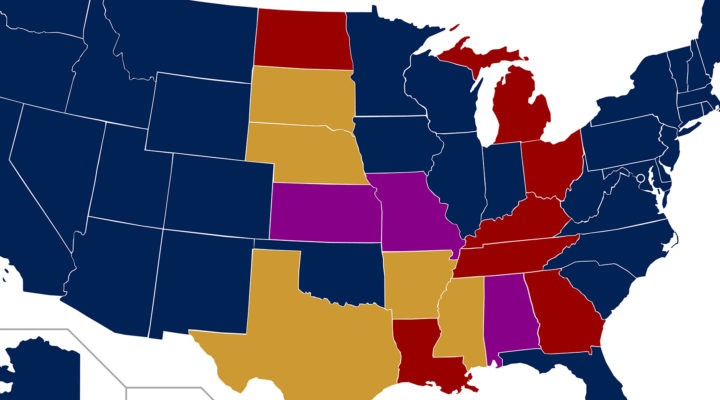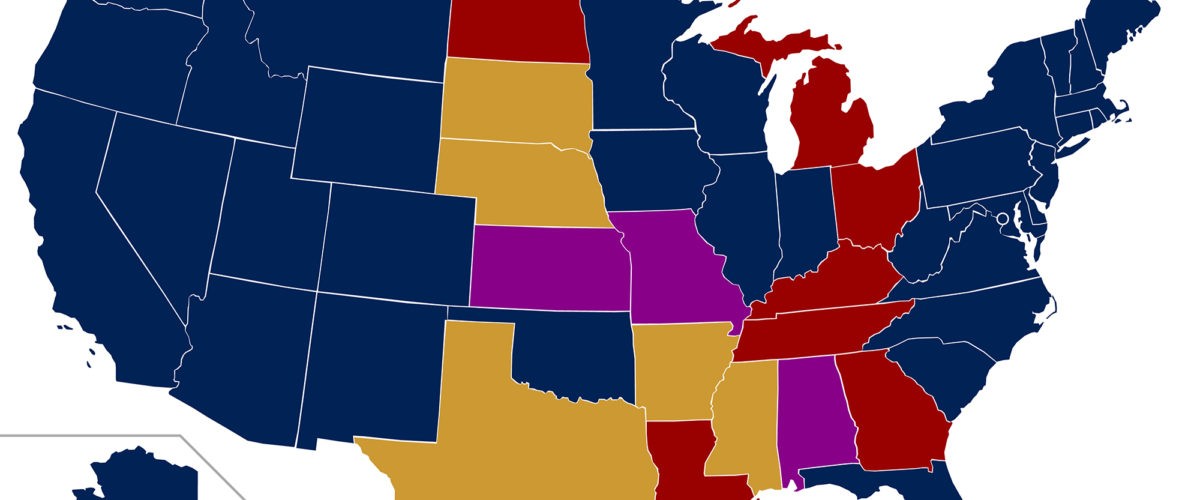Raise your hand if the U.S. Supreme Court decided whether or not you could marry.
I see you, folks in interracial marriages and you queer folks.
Now raise your hand if justices on the current Supreme Court want to invalidate your marriage.
I see you, my queer family.

Susan Shaw
Justices Clarence Thomas and Samuel Alito made news recently when they declared that the landmark case granting the right to marry to same sex couples (Obergefell v. Hodges) was wrongly decided. They wrote that the court chose “a novel constitutional right over the religious liberty interests explicitly protected in the First Amendment, and by doing so undemocratically, the court has created a problem that only it can fix.” They added, “Until then, Obergefell will continue to have ruinous consequences for religious liberty.”
Now the addition of Judge Amy Coney Barrett to the court puts Obergefell and other LGBTQ rights cases at risk. Barrett has a long history of relationship with anti-LGBTQ groups, and her refusal to answer questions about Obergefell and other LGBTQ cases has unnerved many in the LGBTQ community, myself included.
Barrett has given talks for the Blackstone Legal Fellowship, a program for conservative Christian law students, sponsored by the Alliance Defense Fund, which is labeled a hate group by the Southern Poverty Law Center for its virulent anti-LGBTQ agenda. She also served as a trustee for a private Christian school that barred children of LGBTQ parents and did not welcome LGBTQ staff. She is involved with People of Praise, a conservative Christian ministry that excludes LGBTQ people and opposes marriage equality. In her confirmation hearing, she referred to “sexual preference,” a term used by anti-LGBTQ activists to suggest that sexuality is a choice. While she said she did not intend to offend by uttering the phrase, its usage indicates how she understands sexual identity. She claims she never has and never would discriminate against LGBTQ people, and yet in a 2016 speech she claimed Obergefell is about who gets to decide whether or not we have marriage equality.
“While she said she did not intend to offend by uttering the phrase, its usage indicates how she understands sexual identity.”
Who gets to decide. That’s the crux of it. Whether or not my marriage is valid, whether or not queer folks can marry, is a question that may be decided state by state, by legislatures or by popular votes or by courts. When Obergefell was decided, 37 states had fully legalized marriage equality. Thirteen had not.
What did this patchwork mean? It meant Catherine and I were married in Oregon with access to all the rights marriage confers (more on that in a moment), but when we traveled to Georgia to visit my mother, our marriage was not recognized by the state, meaning, for example, we also needed health care power of attorney paperwork should one of us fall ill in Georgia and the other need to make health care decisions.
By the way, we had to spend thousands of dollars to get all the paperwork we needed to protect our rights as a couple. I also note that we are fortunate enough that we could manage the fees for legal documents. Not all queer people can afford lawyers to sort out health and financial powers of attorney and living trusts or wills.
For queer people living in those 13 states prior to Obergefell, access to marriage meant traveling to a state that did provide legal marriage that would be recognized by the federal government, even though it was not recognized in the state where they lived. So, while that marriage meant they could file federal income tax jointly, they would have to file as single people for the purpose of state income tax (which would mean a higher rate of taxation for each of them than if they could have filed jointly).
What other rights does marriage confer?
- Spouses can file taxes jointly.
- A spouse can inherit an entire estate without having to pay an inheritance tax.
- If there’s no will, a spouse still has inheritance rights.
- A spouse can usually be on the other’s employer provided health insurance.
- A spouse can take family leave if a spouse is sick or bereavement leave if someone in the other spouse’s family dies.
- Spouses can receive Social Security, Medicare and disability benefits.
- Spouses can visit in a hospital intensive care unit.
- Spouses can apply for joint adoption.
- Spouses can receive spousal or child support if they divorce.
- Spouses can receive family rates for insurance.
- Spouses can make medical and financial decisions in the case of disabling illness or injury.
- Spouses can claim marital communications privilege.
- Spouses can receive workers’ compensation or bring a wrongful death suit if a spouse dies on the job.
- Spouses have the right to decide what happens to a body when a spouse dies.
- Spouses fall under family laws related to separation, divorce, orders of protection and care of children.
“Marriage confers benefits. Many of them are financial.”
I could go on, but you get the point. Marriage confers benefits. Many of them are financial. Most are about security of the couple as a family unit. Until Obergefell, these rights were contested or denied in many states. If Obergefell is overturned, we will go back to a system that hands out these rights to some people in some places and denies them to others in other places.
Thomas and Alito pit marriage equality against religious liberty rights, but that is a false dichotomy. Providing marriage access to queer people does not abridge religious rights. People can still believe homosexuality is a sin; they can preach against homosexuality; they can protest at Pride parades. No minister is forced to perform a wedding for queer people; nor are churches required to allow a queer wedding in their facilities.
Thomas and Alito’s real concern seems to be that conservative Christians might have to treat queer people as full human beings. Their comments arose from the case of Kim Davis, the Kentucky county clerk who refused to issue marriage licenses to queer couples. They express similar concerns about bakers who refuse to sell wedding cakes to queer couples. Justice Elena Kagan disputes the claim that expecting businesses to provide services to queer people is an infringement on religious liberty. In the Masterpiece Cakeshop decision, she explains that “a wedding cake does not become something different” simply because its vendor imbues its sale with religious significance. She continues, “A vendor can choose the products he sells, but not the customers he serves — no matter the reason.”
“Thomas and Alito’s real concern seems to be that conservative Christians might have to treat queer people as full human beings.”
Now that conservatives have a 6-3 majority in the Supreme Court, the likelihood that LGBTQ rights will be rolled back is high, along with the rights of women and people of color.
This has been the Republican long game all along. They have compromised every principle of conservatism, used every mechanism of raw power, and sold themselves out to Donald Trump for this moment — a conservative majority on the Supreme Court that will last for generations.
And progressives bear some responsibility. Elections have consequences.
Again and again, research shows that most Americans support progressive policies. A new PRRI poll shows that 70% of Americans now support marriage equality. Yet we have a Supreme Court installed by a minority party that will impose conservative laws that will harm the most vulnerable people.
Republican senators represent 15 million fewer Americans than Democratic senators but control the Senate. The Supreme Court reflects not the majority of Americans, but the conservatives who organized and showed up to vote.
Most importantly, 90 million eligible voters did not vote in 2016. Imagine if every eligible voter had voted, given most voters support progressive policies. More voters turned out in 2018, but that number still represented only 47% of the eligible voters. Democrats narrowly lost several Senate contests that year, giving Senate Republicans a slim majority and thus the power to enact their will on Supreme Court nominations.
The new conservative Supreme Court majority likely means harm to many groups of people. That’s one consequence of elections over the past 40 years. Voting matters.
Elections have consequences, and now I sit here wondering if the Supreme Court of the United States will invalidate my marriage the first opportunity it gets.
Susan M. Shaw is professor of women, gender and sexuality studies at Oregon State University in Corvallis, Ore. She also is an ordained Baptist minister and holds master’s and doctoral degrees from Southern Baptist Theological Seminary. Her most recent book is Intersectional Theology: An Introductory Guide, co-authored with Grace Ji-Sun Kim.
Related articles:
You might have missed this, but the Supreme Court just opened a new term
If court reverses same-sex marriage it will do so against what majority of Americans want
What I learned from RBG about the ‘dissenter’s hope’ | Jordan Conley


